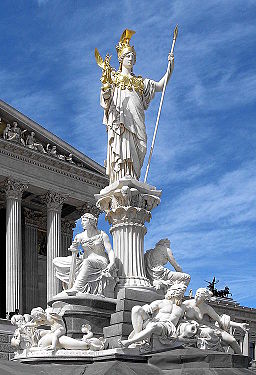Daniel Little: Alexander Herzen's radical liberalism
Daniel Little discusses Alexander Herzen's radical liberalism.
Finally, Herzen has a healthy distrust of "ideology", or purely philosophical theories of an ideal future for which all present human wellbeing must be sacrificed. Against Trotsky, Lenin, and Mao, Herzen mistrusted grand ideological goals and favored a process of social change that permitted ordinary human beings to exercise their freedoms as society changed. Berlin emphasizes this point in his introduction.
It is, in the main, a frontal attack upon the doctrine at that time preached by almost every left-wing orator in Europe (with the notable exception of Proudhon and a handful of anarchists to whom no one listened), about the sacred human duty of offering up oneself—or others—upon the altar of some great moral or political cause—some absolute principle or ‘collective noun’ capable of stirring strong emotion, like Nationality, or Democracy, or Equality, or Humanity, or Progress. For Herzen these are merely modern versions of ancient religions which demanded human sacrifice, faiths which spring from some irrational belief (rooted in theology or metaphysics) in the existence of vast and menacing powers, once the objects of blind religious worship, then, with the decay of primitive faith, degraded to becoming terms of political rhetoric. The dogmas of such religions declare that mere invocation of certain formulae, certain symbols, render what would normally be regarded as crimes or lunacies—murder, torture, the humiliation of defenceless human bodies—not only permissible, but often laudable. (From the Other Shore, Berlin introduction, xv)
Emphasis Mine
I think that Little and Herzen consider philosophical systems such as Marxism to prescriptive rather than descriptive. My reading of the above quotes is that they see left-wing politics (with a few exceptions) as requiring a form of human sacrifice in order to realise the political objectives.
In other words, Little and Herzen do not see Marxism as a way to analyse the world, but rather as a goal to be achieved. The misconception of about Marxism being prescriptive appears to arise from the Manifesto of the Communist Party in which there is a prescriptive ten (10) point plan. That plan was a response to the existing conditions in Europe as of 1848. Since then several of these pints
Little and Herzen see this prescription as requiring some form of human sacrifice while ignoring the human sacrifice imposed by Capitalism through poverty, hunger, disease, homelessness, etc. This is not "what-about-ism" as the implication of their quotes that the need for human sacrifice is inherent in left-wing politics.
Marxism is based on dialectical materialism in which the world is analysed (or described) through the contradictions between material (or real) forces. By examining these contradictions, one can devise a plan to remove them through synthesis.
Little concludes:
The new society, if it is to conform to these disparate values, must accomplish several different social goods:
- respect liberty and equal dignity of all individuals;
- secure the human needs of everyone — workers, engineers, poets, and owners of property;
- be democratic, not autocratic.
Was there any place on the planet in 1850 that satisfied these different structural features? There certainly was not — not Britain, not Switzerland, not the United States. Is there a society on the planet today that satisfies them? Perhaps there is; it is called Finland.
Emphasis Mine
This is not far from what The Communist Manifesto concludes with:
In place of the old bourgeois society, with its classes and class antagonisms, we shall have an association, in which the free development of each is the condition for the free development of all.
Read more!
